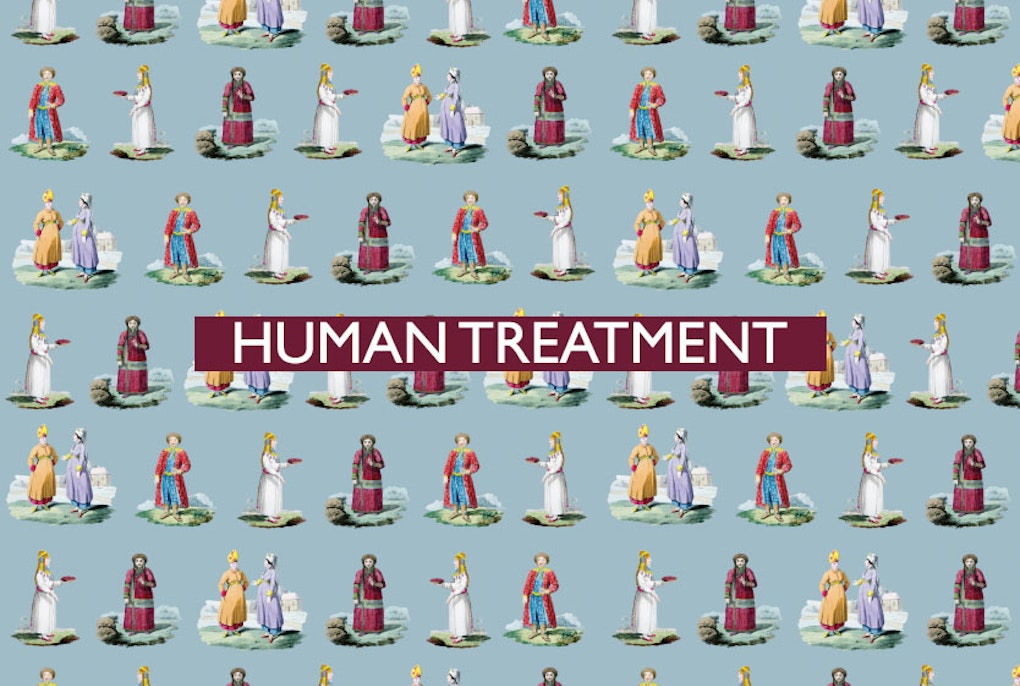
The 4th of all EU-r rights: human treatment and how the Charter contributes
 Gabriel Toggenburg
Gabriel Toggenburg
Should States be able to impose on us a stay in hospital, at home or in defined areas just for the sake of preventing the infamous Corona virus from further spreading?[1] And if yes, for how long? What does the EU Charter have to say? Here you are: “Everybody has the right to liberty and security”. Big words. Little explanation. Without doubt, liberty and security are key. They stand at the beginning of the history of human rights. 805 years ago King John of England agreed in the famous “Magna Carta” to the following: “No Freeman shall be taken or imprisoned, or be disseised of his Freehold, or Liberties, or free Customs, or be outlawed, or exiled, or any other wise destroyed”. This protection granted back then to some rebel barons in the North of Europe has become over time, a basic right for all humans.
The Charter right in action
The EU Charter does not provide much explanation of what is actually meant by “liberty and security”. In this sense Article 6 is exemplary: understanding the EU Charter often requires the study of its sister document – adopted back in 1950 by the Council of Europe, the European Convention on Human Rights (ECHR). Article 5 of the ECHR lays down that a State can only deprive our liberty if this is provided for by law and if in addition one of the following 6 circumstances apply:
It is the text of the EU Charter itself that makes the link to the ECHR: Article 52(3) stresses that in so far as the Charter contains rights corresponding to provisions in the ECHR “the meaning and the scope of those rights shall be the same”. This also implies that the Charter’s right to liberty and security comes with the procedural safeguards laid down in Article 5 ECHR, namely:
| An example how EU legislation deals with detention In the context of children who are suspects or accused in criminal proceedings EU Directive 2016/800 states in Member States should go for alternatives to detention wherever possible. Article 12 states that “Member States shall ensure that children who are detained are held separately from adults, unless it is considered to be in the child’s best interests not to do so“. |
What do the constitutions of the Member States say?
There is no EU Member State whose constitution would not prominently establish a right to liberty. Most constitutions also describe in some detail what sort of guarantees the right to liberty entails. Often national constitutions provide for the circumstances in which liberty can be limited with the constitutions of Cyprus[2], Estonia[3], Malta[4] and Portugal[5] closely following the text of the ECHR in this regard.
Only a few constitutions link – as does Article 6 of the Charter – liberty with security. This is the case for Finland[6], Latvia[7], Portugal[8], Romania[9] and Spain[10]. In fact, some of the drafters of the Charter thought it was misleading to link ‘liberty’ to ‘security’. What is important to note: Article 6 does not address ‘security provided by the State’ (an entitlement to have the State protecting us against aggressions from other individuals) but is limited to ‘security vis-à-vis the State’.
Just as in the Charter, most national constitutions are silent on the prohibition of depriving liberty “merely on the ground of inability to fulfil a contractual obligation“. Such a provision is however, explicitly established under the ECHR system[11] and in the constitutions of the Czech Republic[12], Estonia[13] and the Slovak Republic[14].
So what?
The Charter does not add much to the existing human rights obligations when establishing the right to liberty. The right to liberty and security is to be understood in a rather narrow sense – it protects against arrest and other forms of obligatory detentions. Nevertheless, it is important that, with the Charter, EU primary law provides a written prohibition to unduly limit the liberty and security of persons affected by EU law, which prominently regulates asylum and migration law and increasingly reaches out to the area of criminal law as the European Arrest Warrant clearly shows. But the right to freedom can also be of relevance in other contexts: should the EU legislator ever rule on the possibility of putting citizens from other EU Member States under obligatory quarantine in the context of the fight against the Corona Virus, it would need to prove that it is in line with Article 6 of the EU Charter.
Interested in knowing more? Well, here you are: ‘All EU-r rights‘, stay tuned!
 | Gabriel N. Toggenburg is an Honorary Professor for European Union and Human Rights Law at the University of Graz, Austria. He worked as a Senior Researcher for Eurac Research in Bolzano/Bozen (Italy) from 1998 to 2008. Since 2009, he has been working for the European Union. All views expressed are his own and cannot be attributed to his current or former employers. His blog series “All EU-r rights” published on EUreka! aims at making the EU Charter of Fundamental Rights better known. He is grateful for the honour to have every blog entry introduced by a piece of art by Miloladesign. An annotated list of all Charter rights is available here. |
[1] There are various ways how the “Corona-crisis” could impact on human rights: in the non-delivery of the right to health, in compromising freedom of speech, in the discrimination (for instance) against people of Asian origin, or in adopting unproportioned measures to protect health and security of the society. See Amnesty International, Explainer: Seven ways the coronavirus affects human rights. See also Andrea Kießling, Coronavirus, Masern und die Grundrechte, VerfBlog, 2020/3/02. For a video-blog on the topic see Michael O’Flaherty, Director of the Fundamental Rights Agency here (9.3.2020).
[2] Art. 11(1) of the constitution of Cyprus.
[3] §20 of the Estonian constitution.
[4] Art. 34(1) of the Maltese constitution.
[5] Art. 27(3) of the Portuguese constitution.
[6] Section 7 of the Finnish constitution.
[7] Art. 94 of the Latvian constitution.
[8] Art. 27 of the Portuguese constitution.
[9] Art. 23 (1) of the Romanian constitution.
[10] Art. 171 of the Spanish constitution.
[11] See Article 1 of the Additional Protocol number 11 to the ECHR which all EU Member States have ratified.
[12] Art 8(2) of the Czech Charter of Fundamental Rights and Freedoms.
[13] §20 of the Estonian constitution.
[14] Art. 17(2) of the Slovak constitution.
This content is licensed under a Creative Commons Attribution 4.0 International license.

 Gabriel Toggenburg
Gabriel Toggenburg
 Gabriel Toggenburg
Gabriel Toggenburg
 Martina Dal Dosso
Martina Dal Dosso